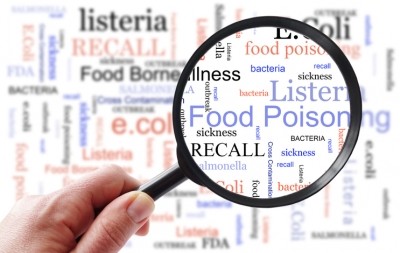Cargill cited for violations by FDA at feed production facility

The US Food and Drug Administration (FDA) published a letter on Tuesday this week, in which it outlined how it had identified regulation non-compliance at a Cargill facility in North Carolina in a series of inspections it conducted at the facility in June 2019. The agency was on site after the agri-giant recalled several lots of animal feed for high aflatoxin levels earlier in the year.
The FDA reported that its inspectors found violations of Current Good Manufacturing Practice, Hazard Analysis and Risk-based Preventive Controls for Food for Animals, which caused its products to be adulterated within the meaning of the FD&C Act.
“In addition, the inspection revealed violations of the Current Good Manufacturing Practice (CGMP) requirements for medicated feeds … Such violations cause the medicated feed labeled as Southern States Traditions Chick Start & Grow manufactured at your facility between May 30, 2018 and January 14, 2019, to be adulterated within the meaning of the FD&C Act.”
Cargill has 15 days following the receipt of this warning letter to identify the steps it has taken, the FDA said.
Company response
Cargill has taken steps to “aggressively implement” corrective practices at its facility in Barber, North Carolina following the inspections, a company spokesperson told us. “We have since provided a written response to the FDA updating them with the systematic improvements that have been put in place.”
“At Cargill, the safety of our products and the well-being of the animals we feed is our top priority,” he added.
Warning letter details
During the inspections, the FDA found that Cargill failed to report a “reportable food” within the 24-hour time window after the company was alerted that a feed product was a reportable food and had a “reasonable probability” of causing serious health consequences or death for animals consuming it.
Cargill had a series of recalls in May that covered a range of Southern States feeds for poultry, sheep, goats, and calves, manufactured between October 31, 2018, and March 1, 2019, the agency said. Although the company was informed of high aflatoxin levels in some products in December and April it did not file a reportable food report until May.
“In addition, your facility did not include a notification to bulk customers to determine the impact on their animals of the elevated aflatoxin levels in the corn included in the finished animal foods they received during the period associated with recalls initiated on May 6, 2019, and expanded on May 26, 2019,” the agency said. “Even though you may have determined your bulk product may not have been available and edible at the time of the recall, your firm still should have informed your bulk customers of the elevated aflatoxin levels in animal food they received so that your customers may assess their animals for any negative effects that may have been caused by the animal food.”
During the inspections, violations to the Hazard Analysis and Risk-Based Preventive Controls requirements for animal feed rendered some of the company’s animal feed products adulterated, the FDA said. The problems noted included that the site “failed to sufficiently assess the probability that a hazard will occur.”
“Your reliance on prerequisite programs in your food safety plan failed to reduce the probability that the presence of an unsafe level of aflatoxin will occur in the absence of a preventive control,” the agency said. “The prerequisite programs identified in your hazard analysis are not operating in a way that reduces the probability of occurrence, as evidenced by animal food samples collected by the North Carolina Department of Agriculture and Consumer Services (NCDA) between November 26, 2018, and March 11, 2019 … including samples that tested above the FDA action level of 20 ppb for their intended use.”
The levels found in some tested products were above Cargill’s acceptance levels, the agency said. “In addition, third-party testing of retain samples from finished animal food products manufactured from November 2018 to February 2019 revealed samples that tested over the FDA action level for the pertinent species and animal life stage,” it added.
Although a response to this criticism included a draft procedure to address the situation, the FDA was not able to evaluate the corrective action because it was still in development, the agency said.
The company allegedly also failed to have a reanalysis of the food safety plan, following the “unanticipated food safety problem,” the FDA said. When the agency inspected the manufacturing facility in June, following the recalls the site had not re-evaluated the safety plan.
The agency also noted an issue with some of the medicated feed generated at the facility that renders the feed product “adulterated,” the FDA said. Reportedly, the company did not take corrective action and failed to stop sales of medicated feed that did not meet its “labeled drug potency.”
The Traditions Chick Start & Grow was found to be out of specification – the company started a product investigation in June 2018 and determined that the variance was generated by a problem outside of the manufacturing process, the FDA said. Cargill started a supplier corrective action process, however, the facility failed to take the corrective action or discontinue the spread of the medicated feed, reported the agency.
“Records collected during the FDA inspection found your facility continued to manufacture and distribute Traditions Chick Start & Grow, including, but not limited to, two instances between January 2, 2019, and February 22, 2019,” the agency said.












